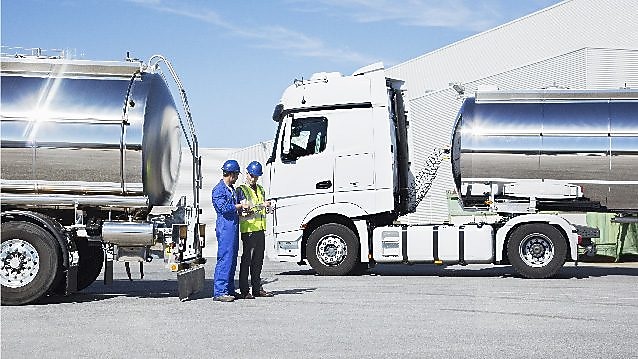
Turn your data into real results
Fleet management is awash with different sources of data, from smartphones and tablets, to photo reporting. But many businesses are still only using a fraction of the data they are mining.

By Florence Buswell on Jun 11, 2019
An independent survey commissioned by Shell found nine out of 10 fleet managers acted on less than 60% of the insights offered by telematics [1]. Meanwhile Chevin Fleet Solutions [2] found many fleet managers were simply turning off their sophisticated telematics equipment after a couple of weeks as they were overwhelmed by the data they were presented with.
But the wealth of data at your fingertips can have a big - and positive - impact on your business, with the potential to improve safety, driver behaviour and reduce costs.
The key is identifying and centralising the most useful telematics for your business and integrating it across your operations. But which sources can show tangible results and how can they impact positively on your company’s business objectives?
What works for your business?
Take a step back and ask what it is you want your data to deliver.
Some telematics is more suitable for some companies than others and a flood of data sources can be counter-productive if you don’t have a clear purpose for it.
This is where the size and type of your fleet will come into play.
It’s also important to clarify the extent to which you need data. Video telematics, such as dashboard cameras, can provide integral data for accidents. Video can also identify unsafe driving techniques that can then be used to train drivers.
But constant monitoring isn’t always helpful. The most useful solutions usually link cameras to vehicle performance, driver behaviour or specific events like a door opening, so the most valuable information is clearly visible [3].
Route management and vehicle tracking
Take advantage of telematics with route management and vehicle tracking to help maintain a streamlined, efficient fleet.
All fleets can benefit from vehicle tracking telematics, which analyse routes and timings of journeys showing which routes are likely to be the most congested and at what times. According to RAC, 80% of businesses use staff vehicle tracking[4].
Data from mobile phones and sat-navs can also prove invaluable to your route management. For example, smartphones and tablets hooked up with location tracking, job dispatch and vehicle diagnostics data can provide delivery detail information to drivers.
This data can also tell you in real-time where your drivers are, giving you the opportunity to stay connected with your fleet and the end customer.
Fuel efficiency
Data can help you save money on fuel, with 55% of businesses showing a reduction in fuel use by adopting telematics[5].
This is often linked with different benefits. For example, modern tools can map driver behaviour in league tables or chart the most habitual bad driving habits and offer underperforming drivers training in the areas that will really make a difference.
Telematics systems can also show how fuel efficient your vehicles are and help pinpoint where small tasks could make a big difference. Fitting the right tyres or regularly tuning the engines, for instance, could help your fuel go further.

Vehicle breakdown management
An Automotive Fleet report found that just one unplanned road call can cost more to a company than an entire telematics system costs for three years[6]. This kind of analysis shows the true value of using telematics to identify and prevent problems before they happen.
Callum Gibson of FLEETCOR explains: “When it comes to vehicle maintenance, big data can be used to predict and detect problems before they happen, connecting drivers to the best offers for maintenance services so they buy when prices are low, rather than as a distress purchase with a premium price to match.”
Reducing your insurance premiums and increasing your health and safety
Telematics such as monitoring driver performance, dashboard technology, and vehicle maintenance data can be used to improve the health and safety of your fleet. RAC report a 43% reduction in accidents involving staff with access to telematics[7].
All this should help with your insurance premiums. You could also look into driver training programmes with your insurer if your data shows your drivers could benefit – all insurers should take into account defensive driver training.
Data from front-facing camera technology could also help defend claims or settle at-fault claims. Fleet News reports organised fraudulent vehicular claims currently cost the industry £350m a year[8].
Telematics can be overwhelming and is only as useful as the information you’re able to extrapolate from the data. Identifying the most valuable information you need from telematics will help you focus on the right data needs for your business and ensure you don’t waste time and money on extraneous – and overly complicated – systems.
[2] Fleet managers 'overwhelmed' by big data possibilities
[3] 12 Telematics Trends and Technologies
[4] RAC Telematics Report 2016
[5] RAC Telematics Report 2016
[6] 12 Telematics Trends and Technologies


